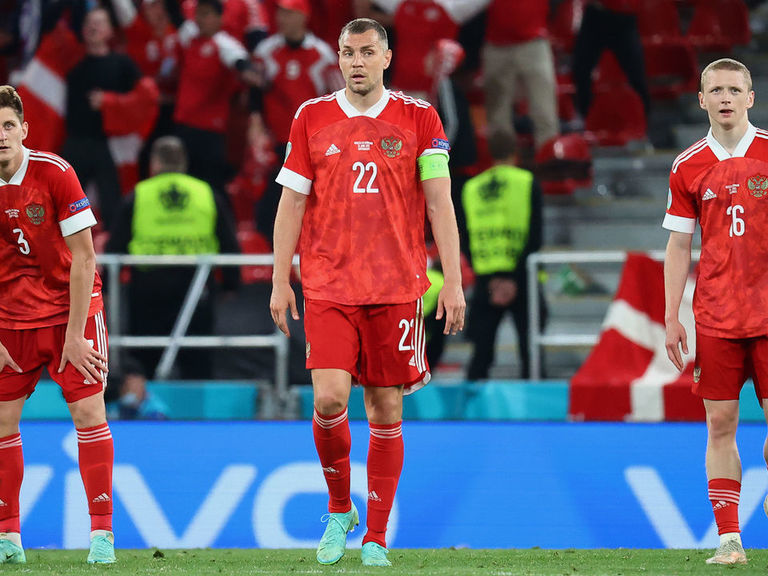FIFA, UEFA suspend Russia from all international soccer competitions

Russia has been banned from all international soccer competitions until further notice amid its invasion of Ukraine, FIFA and UEFA announced Monday in a joint statement.
The suspension means Russia will not partake in the World Cup qualification playoffs or in the men’s tournament itself in Qatar later this year. Russia was due to meet Poland in a playoff semifinal on March 24.
Russia will also not be involved in this summer’s European Women’s Championship. The ruling applies to club teams, too, with Spartak Moscow now expelled from the Europa League after reaching the round of 16.
“Football is fully united here and in full solidarity with all the people affected in Ukraine,” read the joint statement from FIFA and UEFA. “Both presidents (Gianni Infantino and Aleksander Ceferin) hope that the situation in Ukraine will improve significantly and rapidly so that football can again be a vector for unity and peace amongst people.”
The Football Union of Russia said it “reserves the right to challenge the decision of FIFA and UEFA in accordance with international sports law,” according to the Associated Press. Sanctions levied by FIFA and UEFA have often been appealed at the Court of Arbitration for Sport (CAS) in Switzerland.
UEFA also ended its longstanding partnership with Russian energy giant Gazprom, a deal that had been in place since 2012. The sponsorship agreement was worth over €50 million per season, according to Tariq Panja of The New York Times. Bundesliga club Schalke also scrapped its shirt sponsorship deal with the state-owned corporation.
Those moves came after a decision last week to strip St. Petersburg of this season’s Champions League final, which was due to be played at the Gazprom Arena but has since been moved to Paris. Alexander Dyukov, chairman of the board for the petrol branch of Gazprom, is a member of UEFA’s executive committee and serves as president of Russia’s football federation.
FIFA had announced a series of lesser sanctions against Russia on Sunday but stopped short of a blanket ban. Those penalties – which included matches at neutral venues, changing Russia’s official team name to “Football Union of Russia,” and barring the use of the country’s flag and anthem – were swiftly deemed too weak by several nations that previously stated they would not play against Russia in any competition.
Poland – the nation most fervent in its rejection of Russian participation – dismissed the initial measures as “totally unacceptable,” with Polish football association president Cezary Kulesza saying the March 24 qualifier would not proceed “no matter what the name of the team is.”
Sweden and the Czech Republic also previously outlined their refusal to play World Cup qualifying matches against Russia and reaffirmed that stance Sunday after FIFA announced its initial punishments.
World football’s governing body reconvened Monday after the International Olympic Committee urged sporting organizations to exclude all Russian and Belarusian athletes from international events; Belarus has been providing support for Russia’s war efforts.
FIFA was ultimately left with little choice amid growing outcry, as England, the United States, and Canada, among others, also joined calls to expel Russia. FIFPro, the global players’ union, had said it “strongly disagreed” with Sunday’s initial penalties.





